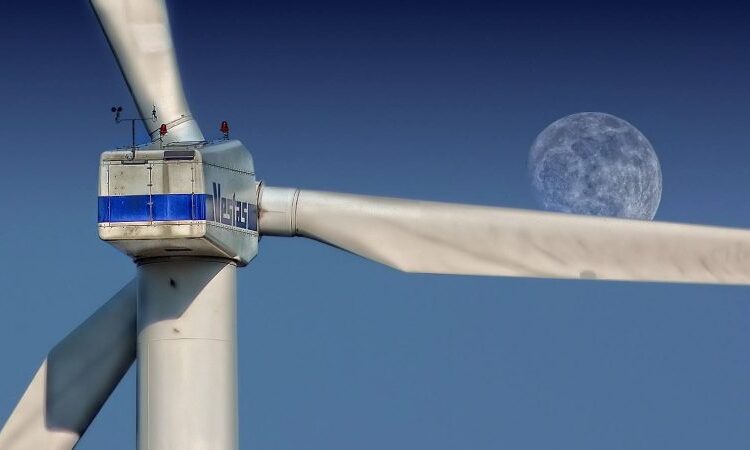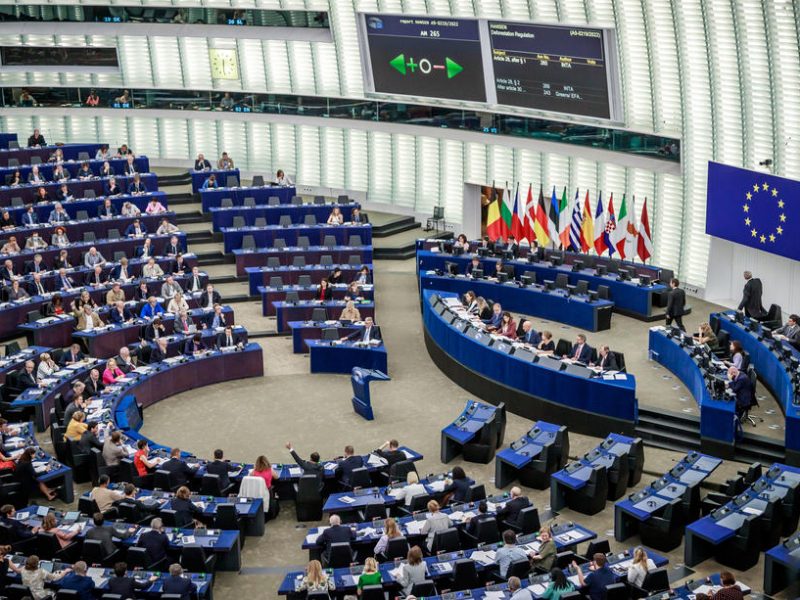
France, the Netherlands, Ireland, and several other EU countries are reluctant to back a European Commission proposal to boost the EU’s renewable energy objective for 2030 in response to Russia’s war in Ukraine, EURACTIV can confirm.
European Union countries are currently debating plans to increase the bloc’s renewable energy target to 45% by 2030, in line with European Commission proposals tabled in May this year.
The revised target was put forward as Europe seeks to exit Russian fossil fuels “well before 2030” in a bid to stop financing the Kremlin’s war effort.
“This is not only a war unleashed by Russia against Ukraine. This is a war on our energy, a war on our economy, a war on our values and a war on our future,” said European Commission President Ursula von der Leyen, who defended the plans before the European Parliament in September.
But EU member states are reluctant to back the 45% target, according to a document summarising the position of EU capitals ahead of a meeting of EU energy ministers on Monday (19 December).
Instead, a majority of EU countries would rather stick to the 40% goal tabled by the Commission in July 2021, according to the document prepared by Czechia, which currently holds the EU’s six-month rotating presidency.
“Member states shall collectively ensure that the share of energy from renewable sources in the Union’s gross final consumption of energy in 2030 is at least 40%,” reads the document, referring to the 2030 target that EU countries signed up to at an earlier meeting in June.
According to European diplomats in Brussels, there is currently no majority in favour of the higher target, with several key countries like France, the Netherlands, and Ireland so far refusing to endorse the 45% objective.
“The text proposed by the presidency indicates 40% and that is fine with us. We are ready to support the general approach,” said one EU diplomat who spoke to EURACTIV on condition of anonymity.
Europe currently sources just over 22% of its energy from renewables like wind, solar and biomass.
Nine EU countries come out in support of 45% goal
Some other countries, meanwhile, are pushing for higher ambition. Those include Austria, Denmark, Estonia, Germany, Greece, Lithuania, Luxembourg, Portugal, and Spain, which have issued a joint paper backing the 45% target.
“Given the current energy crisis and the need for a swift reduction of the EU’s dependency on fossil sources, in particular from Russia, while increasing security of supply, we think that an increase of the renewables target to 45% is indispensable,” says the paper, obtained by EURACTIV.
“Next to energy savings, it is more important and urgent than ever to rapidly scale up renewables,” it adds, saying this is a “requisite to regain control over energy prices” and stay on track with the EU’s climate commitment under the Paris Agreement.
The 45% renewables target for 2030 is also backed by the European Parliament, which has an equal say on the matter as EU member states.
Finland is also understood to support the 45% goal but has so far not signed up to the paper, according to sources familiar with the matter. Sweden, meanwhile, is supportive but holding back as they are about to take over the EU’s six-month rotating presidency from Czechia on 1 January and are supposed to keep a neutral stance.
Wind industry says priority is to ensure targets are met
Campaigners have criticised the Czech EU presidency for failing to support higher ambition on renewables and sticking with the 40% target that was initially tabled before the Russian war in Ukraine.
“This attempt by the Czech presidency to push through a lower target undermines the EU’s commitment to its people and to Ukraine,” said Seda Orhan, a renewable energy campaigner at CAN Europe.
Pieter de Pous from climate think-tank E3G described the 40% target as “inadequate” and urged big EU member states like France to take a clearer stance in favour of more renewables.
“France, Ireland, and the Netherlands have so far remained ambiguous on the issue and will need to come out in support of 45% for a deal to be reached that will turbo-charge EU efforts to cut its gas dependencies,” de Pous said.
SolarPower Europe, a trade association, has come out in support of the 45% target, saying it will put Europe on a path to achieve its climate commitments.
But the wind industry has taken a more nuanced stance, saying the priority is to ensure targets can be delivered.
“New targets are great but the EU member states must also ensure that these targets can be delivered,” said WindEurope CEO Giles Dickson, who urged EU countries to set aside enough sites for wind energy projects and improve permitting.
“Today’s permitting procedures are too complex and too long to come close to either the 40% or the 45% target,” he told EURACTIV.
Ramping up wind energy production will also require “huge investments” in manufacturing capacity, as well as investments in supporting infrastructure such as grids, ports and vessels.
“If these problems are not addressed any updated 2030 renewables target remains academic. What we need are sound industrial policies for renewables,” Dickson warned.
> The Read the Czech Presidency document is accessible below. It can also be downloaded here.
[Edited by Zoran Radosavljevic]







